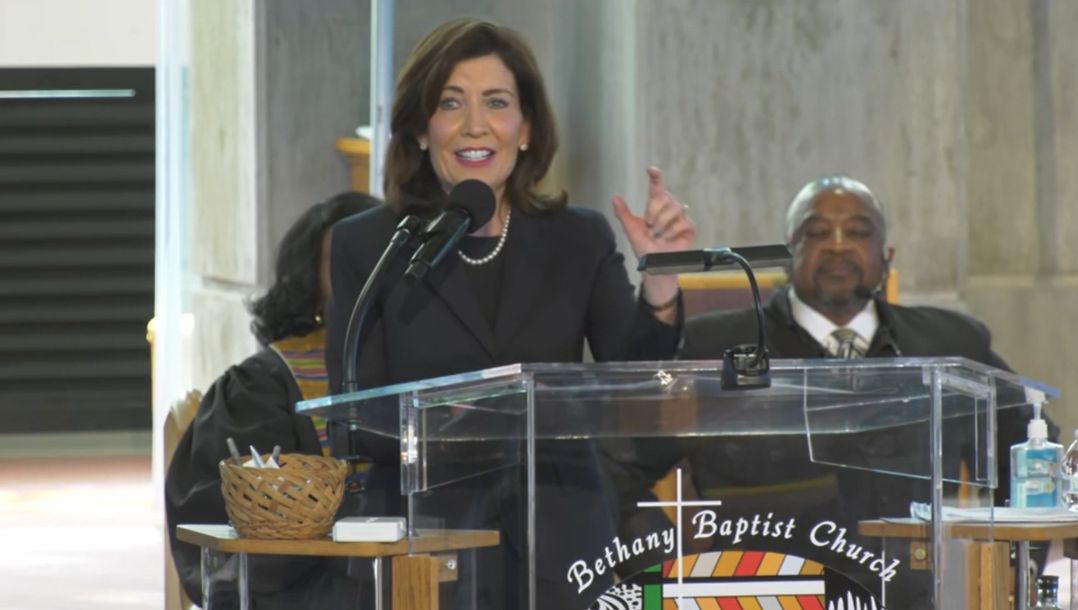Gov. Kathy Hochul will make what is believed to be the first trip by a sitting New York governor to Seneca Nation Territory next week, when she will apologize to the Seneca people and thousands of former Indigenous students and descendants for what she said was New York’s role in separating them from their families and forcing them to assimilate at the Thomas Indian School in Western New York’s Cattaraugus Territory.
Hochul’s Tuesday visit includes meetings with survivors of atrocities committed at the residential boarding school, which the state owned and operated from 1875 to 1957, she and Seneca President J. Conrad Seneca announced Friday morning.
“The atrocities that our children suffered at the Thomas Indian School have remained hidden in the shadows for far too long,” Seneca said in a statement Friday. “At long last, our people will hear, directly from the Governor, the words we have waited lifetimes for the State of New York to say — ‘We’re sorry.’”
The U.S. operated or supported 408 national Native American boarding schools across 37 states between 1819 and 1969, according to a 2022 U.S. Interior Department report, which detailed rampant physical, sexual and emotional abuse at many of the schools.
Native American children who attended the boarding schools were stripped of their cultural identity and suffered abuse, violence, hatred and in at least several hundred cases, death, at the hands of school officials, according to the report.
The school system discouraged American Indian, Alaska Native and Native Hawaiian languages, religions and cultural practices and used corporal punishment to enforce rules, according to the more than 100-page report, which included information on marked and unmarked burial sites at or near school facilites, the identification of children and investigating abuses.
Seneca’s father attended Thomas Indian School, and his grandmother was removed from her family at the age 11 and forced to attend Carlisle Indian Industrial School in Pennsylvania, Hochul noted.
“I know the pain and the trauma because I have seen it and felt it in my own family, just as countless families have borne that pain and carried it every day for generations,” Seneca said.
Hochul said her visit will fulfill a pledge she made to Seneca in Albany earlier this year.
“No words or actions will ever be able to undo the pain and suffering of the Seneca people and other Indigenous peoples across the State, but by visiting the Seneca Nation and the site of the Thomas Indian School we will mark a new day in our relations,” Hochul said in a statement.


